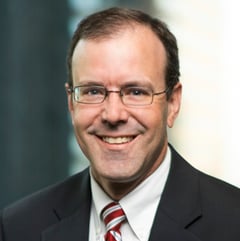Bradley’s The Law of Order blog serves as a general parliamentary procedure resource, providing information about creation and revision of governing documents (constitutions, bylaws, or rules), application of Robert’s Rules of Order and other procedural authorities in a variety of contexts (such as nonprofits, political parties, homeowners associations, unions, churches, trade associations), and leadership of any type of organizational meeting. In an effort to make all things parliamentary more...


Practice Expertise
- Tax
- Trusts and Estates
Areas of Practice
- Tax
- Trusts and Estates
Profile
Scott Adams is a member of the Firm’s Trusts and Estates and Tax Practice Groups. Part of Scott’s practice focuses on estate planning strategies designed to minimize estate and other taxes, as well as ensure that assets left under a decedent’s will or trust for family members can be effectively and efficiently managed. In addition, Scott has significant experience in advising clients with respect to the administration of trusts and estates, and handling trust and estate litigation matters.
Scott has advised and assisted clients on various estate planning opportunities, including drafting wills and trusts designed to achieve significant tax savings. Some of the trusts that Scott has advised on and drafted include grantor trusts, generation-skipping transfer (GST) trusts, irrevocable life insurance trusts, grantor retained annuity trusts (GRATs), qualified personal residence trusts (QPRTs), revocable trusts used as either lifetime management tools or will substitutes at a client’s death, and various charitable trusts. He has experience in advising clients regarding family limited partnerships and limited liability companies, which are designed to enable clients to manage family assets and achieve other estate planning goals.
In addition to assisting clients with and drafting various estate planning documents, Scott has represented clients in trust and estate litigation matters, estate administration and return preparation. Scott also has experience in representing clients in estate and gift tax audits before the Internal Revenue Service.
Bar Admissions
- Alabama, 2000
Court Admissions
- United States District Court, Middle District of Alabama
- United States District Court, Northern District of Alabama
Education
- University of Virginia School of Law, J.D., 2000
- Florida State University, B.S., 1997, summa cum laude
Areas of Practice
- Tax
- Trusts and Estates
Blogs
Meet our Firms and Professionals
WSG’s member firms include legal, investment banking and accounting experts across industries and on a global scale. We invite you to meet our member firms and professionals.


